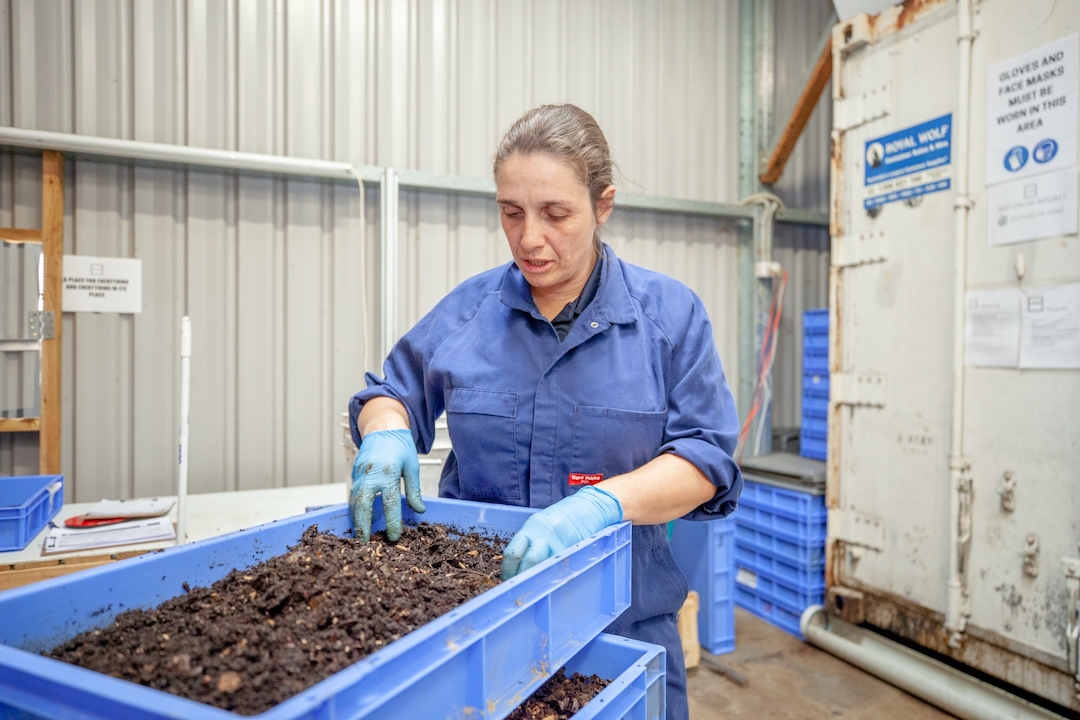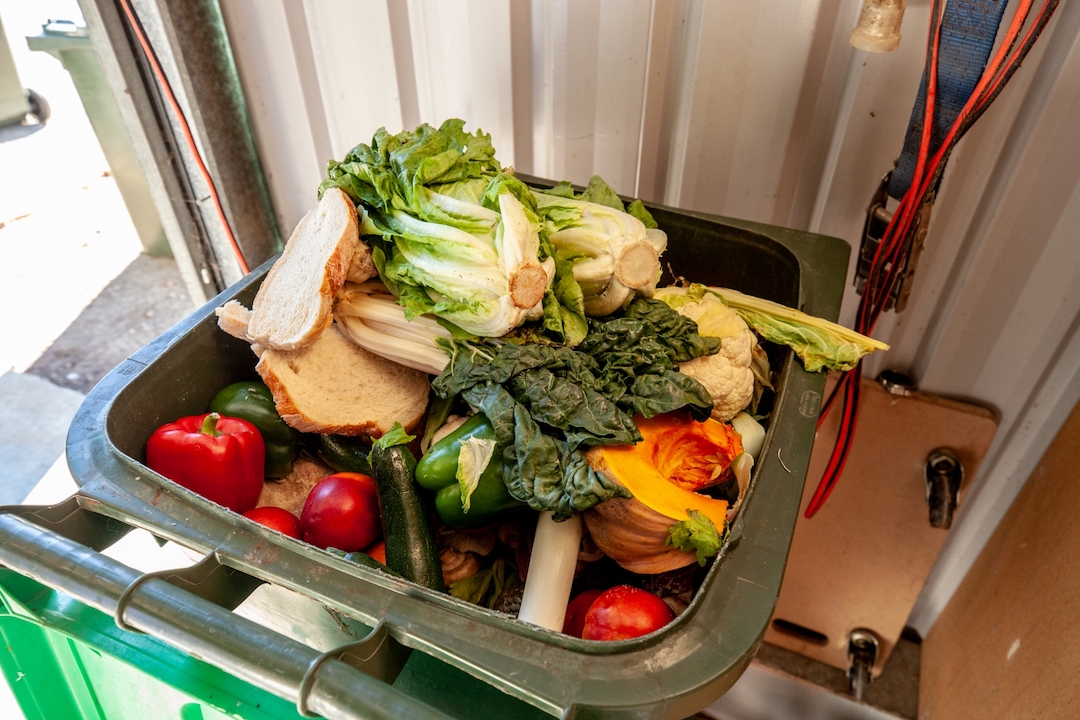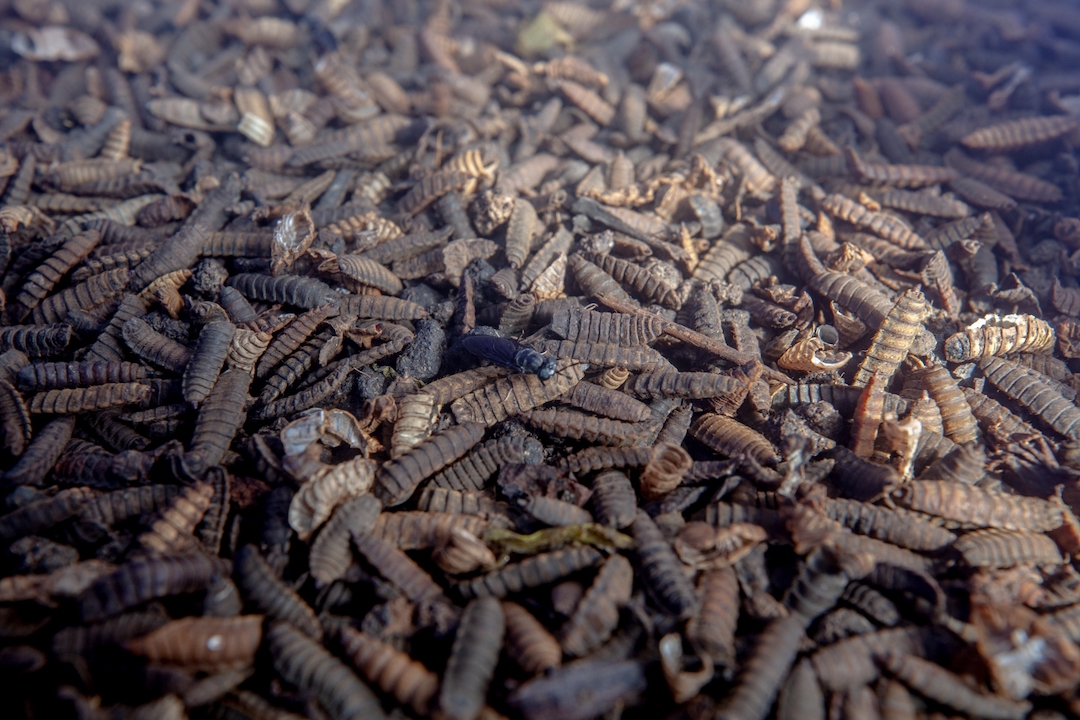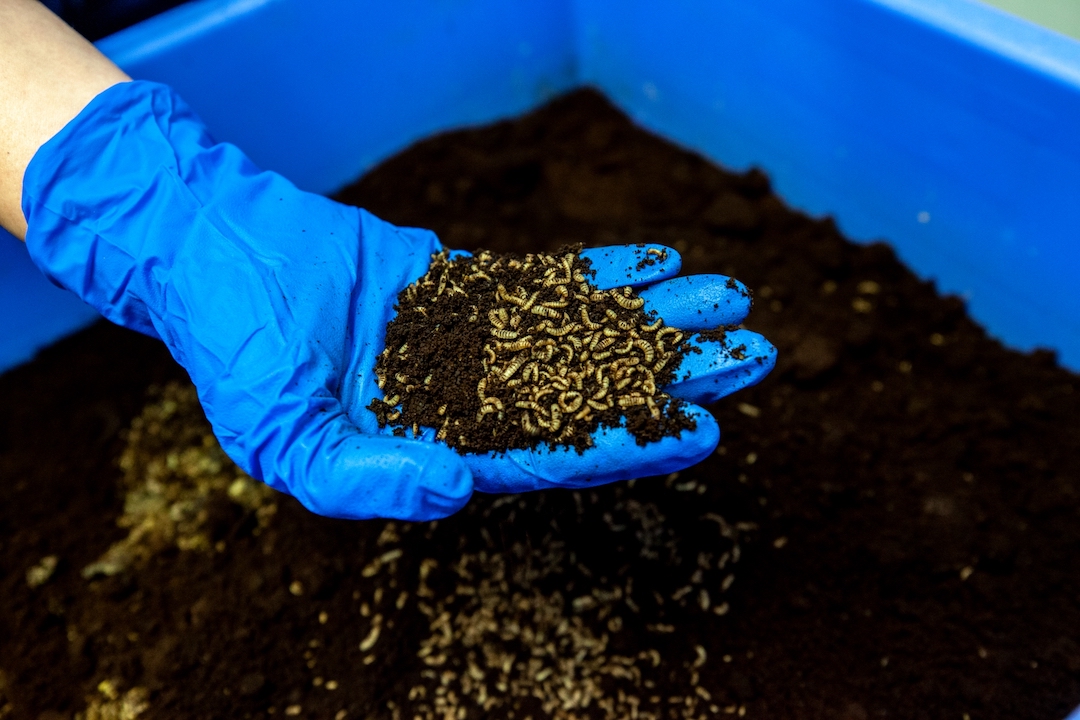In an effort to confront the issue of escalating food waste, one ofAustralia’s leading supermarkets has forged a partnership with innovative insect farming start-up Goterra.
The initiative utilises the larvae of the Black Soldier Fly (BSF) in sophisticated, shipping container-sized modules affectionately dubbed ‘Maggot Robots.’ These units have the astonishing capability to decompose food waste on-site, drastically reducing waste volume by 95 per cent within just
24 hours.
The result? The production of organic fertilizer and a nutrient-dense protein meal, which champions the principles of a circular economy. This aligns with Woolworths’ goal to send zero food waste to landfill by 2025.
Opening image: Black soldier fly ( Hermetia Illucens ) aviary and maggots at GoTerra facilities in Canberra, Australia. Frederic Courbet for Panos Pictures/Food and Land Use Coalition.

Olympia Yarger, CEO of GoTerra organisation in Canberra, Australia. Image: Frederic Courbet for Panos Pictures/Food and Land Use Coalition.
The visionary behind Goterra
Olympia Yarger, the visionary behind Goterra and the 2023 ACT Australian of the Year, is a pioneer in insect farming. She founded Goterra in 2014 as an agritech start-up focusing on innovative waste management using maggots.
Since then, Yarger’s ‘Maggot Robot’ system has significantly reduced greenhouse gas emissions by processing over 35,000 tonnes of waste and saving more than 66,000 tonnes of carbon emissions. Her commitment to sustainability and climate action exemplifies her role as a leader in environmental innovation.
Speaking to Business Australia, Yarger claims that Goterra is not just a tech company that is experiencing success or growth, but is “answering a really big problem”.

Food waste collected from supermarkets brought to GoTerra facilities in Canberra, Australia. Image: Frederic Courbet for Panos Pictures/Food and Land Use Coalition.
The really big problem
Australia generates over 7.6 million tonnes of food waste annually – enough to fill the Melbourne Cricket Ground a staggering nine times – which costs the economy over $36.6 billion. This waste accounts for around 10 per cent of global greenhouse gas emissions, translating to 17.5 million tonnes of CO2 in Australia.
This represents a significant challenge, with millions of tonnes of food waste ending up in landfills each year, contributing to environmental degradation and economic loss.
The partnership between Woolworths and Goterra, however, showcases an effective model of how technology can be harnessed to address this issue.
The larvae inside the high-tech Maggot Robots work around the clock, allowing for 24/7 waste processing. Sensors track temperature, moisture and waste levels, automatically adjusting conditions to optimise digestion.
By processing over 100 tonnes of food waste weekly, the Maggot Robots not only aid in waste reduction but also mitigate the environmental impact associated with the transporting waste to distant landfills.
Speaking to Future Alternative, Yarger says, “Our new facility at Wetherill Park has the capacity to recover 6,000 tonnes of food waste annually and turn it into valuable and sustainable products including fertiliser and insect protein, helping to close the loop for key customers including Woolworths.”

Black soldier fly ( Hermetia Illucens ) aviary and maggots at GoTerra facilities in Canberra, Australia. Image: Frederic Courbet for Panos Pictures/Food and Land Use Coalition.
A model for sustainable waste management
Woolworths has been utilising Goterra’s technology in a small-scale trial across its ACT stores since 2020 and is now its foundation customer.
Woolworths 360 Managing Director of Sustainable Impact, Laurie Kozlovic, said the system is a key piece of infrastructure that will enable Woolworths’ ambition to divert all food waste from landfill.
“While each of our stores has a partnership with a hunger relief charity, some of our food waste can’t be eaten and Goterra’s unique technology provides a low-emissions pathway to save it from landfill.”
This partnership exemplifies the potential of collaborative efforts between large corporations and innovative start-ups in addressing the environmental challenge of food waste.
By transforming this waste into valuable commodities, initiatives like this not only help mitigate environmental issues but also stimulate economic growth by introducing new products and job opportunities. The Sydney site in Wetherill Park will create 12 new jobs for locals to Fairfield City Council.
Goterra is also planning to expand its fleet of modular waste units across Australia, providing scalable, decentralised and emissions-reducing waste solutions.
“For too long, food waste has languished in toxic landfills hundreds of kilometres from our cities,” says Yarger. “Our partnership with forward-thinking partners like Woolworths is helping change that.”
For more amazing stories about technological innovation for the environment, check out how blister packs are being turned into fencing here.

